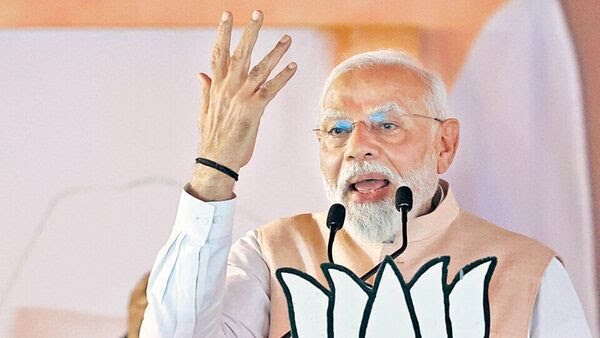New Delhi, April 7: In response to Prime Minister Narendra Modi’s recent comments comparing the Congress Party’s manifesto to the ideology of the Muslim League, many in the Muslim community are reflecting on the implications of such statements.
PM Modi’s remarks, made during a rally in Saharanpur, Uttar Pradesh, where he accused the Congress of being out of touch with modern India and likened their manifesto to the historical stance of the Muslim League, have raised eyebrows and sparked discussions within the Muslim community.
For Muslims, particularly those familiar with the history of the Muslim League, the comparison is significant. The Muslim League, led by figures like Mohammed Ali Jinnah, played a pivotal role in advocating for the rights and interests of Muslims during the British colonial period. The demand for a separate Muslim-majority nation, which ultimately led to the creation of Pakistan in 1947, was a culmination of efforts to secure political representation and safeguard the interests of Muslims in the Indian subcontinent.
To hear the Congress Party’s manifesto being equated with the ideology of the Muslim League is viewed by some as a reductive and perhaps even divisive characterization. Many Muslims see the Congress as a secular and inclusive party that has historically championed the rights of all religious and ethnic communities in India.
The reference to the Muslim League in this context also raises questions about the framing of political discourse and the narratives surrounding India’s diverse history. The Muslim community in India is diverse and multifaceted, and its members hold a range of political views and affiliations.
As the country prepares for the upcoming Lok Sabha Elections, discussions around identity, representation, and historical legacies are likely to continue. Muslims, like other communities, are engaging critically with political rhetoric and evaluating how different parties address their concerns and aspirations.
In the midst of political campaigns and debates, many Muslims are emphasizing the importance of nuanced and inclusive political discourse that acknowledges India’s pluralistic heritage and respects the diverse perspectives within the Muslim community.




